Philosophy
Forty years ago this summer, a group of women and men came together to form the National Organization for Women (NOW). NOW’s mission was to fight for gender equality through education and litigation. While not the only group fighting for women’s rights, it quickly became one of the best known and largest. Today, NOW has over a half million members and over 500 chapters throughout the country. NOW was founded at a time when women were entering the paid labor force in increasing numbers. NOW had its critics: many said it ignored race and class, others said it was too focused on liberal feminist legal strategies like passing the Equal Rights Amendment. Numerous other organizations representing working-class women and women of color developed, including the Coalition of Labor Union Women, 9to5, the National Organization of Working Women, and the Combahee River Collective. Together with a myriad of other groups these organizations helped build the women’s movement of the 1960s and 1970s | more…
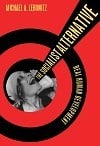
“A good society,” Michael Lebowitz tells us, “is one that permits the full development of human potential.” In this slim, lucid, and insightful book, he argues persuasively that such a society is possible. That capitalism fails his definition of a good society is evident from even a cursory examination of its main features. What comes first in capitalism is not human development but privately accumulated profits by a tiny minority of the population. When there is a conflict between profits and human development, profits take precedence. Just ask the unemployed, those toiling at dead-end jobs, the sick and infirm, the poor, and the imprisoned. | more…

Antonio Gramsci is a giant of Marxian thought and one of the world’s greatest cultural critics. Antonio A. Santucci is perhaps the world’s preeminent Gramsci scholar. Monthly Review Press is proud to publish, for the first time in English, Santucci’s masterful intellectual biography of the great Sardinian scholar and revolutionary. | more…
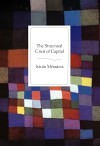
In this collection of trenchant essays and interviews, István Mészáros, the world’s preeminent Marxist philosopher and winner of the Libertador Award for Critical Thought (the Bolivar Prize) for 2008, lays bare the exploitative structure of modern capitalism. He argues with great power that the world’s economies are on a social and ecological precipice, and unless decisive radical action is taken soon to totally transform our economic system—from one based upon the blind pursuit of profit to one controlled by the workers themselves to not just satisfy our basic needs but to help each of us to develop our full potential as human beings—we will find ourselves thrust headfirst into barbarism and environmental catastrophe. | more…
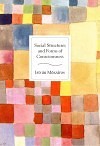
This new work by the leading Marxian philosopher of our day is a milestone in human self-understanding. It focuses on the location where action emerges from freedom and necessity, the foundation of all social science.…Today, as never before, the investigation of the close relationship between social structure — defined by Marx as “arising from the life-process of definite individuals” — and the various forms of consciousness is particularly important. We can only perceive what is possible by first identifying the historical process that constrains consciousness itself, and therefore social action. | more…

Since its first publication twenty years ago, Eurocentrism has become a classic of radical thought. Written by one of the world’s foremost political economists, this original and provocative essay takes on one of the great “ideological deformations” of our time: Eurocentrism. Rejecting the dominant Eurocentric view of world history, which narrowly and incorrectly posits a progression from the Greek and Roman classical world to Christian feudalism and the European capitalist system, Amin presents a sweeping reinterpretation that emphasizes the crucial historical role played by the Arab Islamic world. Throughout the work, Amin addresses a broad set of concerns, ranging from the ideological nature of scholastic metaphysics to the meanings and shortcomings of contemporary Islamic fundamentalism. This second edition contains a new introduction and concluding chapter, both of which make the author’s arguments even more compelling. | more…
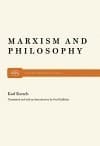
Marxism and Philosophy is Karl Korsch’s masterwork. In it he argues for a reexamination of the relationship between Marxist theory and bourgeois philosophy, and insists on the centrality of the Hegelian dialectic and a commitment to revolutionary praxis. Although widely attacked in its time, Marxism and Philosophy has attained a place among the most important works of twentieth-century Marxist theory, and continues to merit critical reappraisal from scholars and activists today. | more…
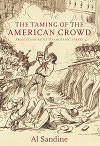
The Taming of the American Crowd explains how the crowd as an active subject of change—often positive, sometimes not—has been replaced by the passive crowd as object of control and regulation. Today, the imperatives of mass society organize people in large numbers to consume goods and conform to permissible behavioral patterns; not to openly contest power. But, with the world entering a new period of economic uncertainty and mass protests erupting across the globe, it is time to reverse that trend. This book shows us the history of the untamed crowd and urges us to reclaim its legacy. | more…
At some level, perhaps not too well articulated, socialist feminism has been around for a long time. You are a woman in a capitalist society. You get pissed off: about the job, the bills, your husband (or ex), about the kids’ school, the housework, being pretty, not being pretty, being looked at, not being look at (and either way, not listened to), etc. If you think about all these things and how they fit together and what has to be changed, and then you look around for some words to hold all these thoughts together in abbreviated form, you’d almost have to come up with “socialist feminism.” | more…

Given the extent and extremity of violence today, even in the absence of world war, and two decades after the end of actually-existing socialism, it is hard not feel that we are living in another age of barbarism. The scale and pervasiveness of violence today calls urgently for serious analysis—from “the war on terror” and counter-insurgencies, from terror and counter-terror, suicide bombings and torture, civil wars and anarchy, entailing human tragedies on a scale comparable to those of the two world wars, not to mention urban gang warfare, or the persistence of chronic violence against women. That the nirvana of global capitalism finds millions of people once again just “wishing (a) not to be killed, (b) for a good warm coat” (as Stendhal is said to have put it in a different era) is, when fully contemplated, appalling. | more…
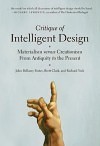
Critique of Intelligent Design is a direct reply to the criticisms of intelligent design proponents and a compelling account of the long debate between materialism and religion in the West. It provides an overview of the contemporary fight concerning nature, science, history, morality, and knowledge. Separate chapters are devoted to the design debate in antiquity, the Enlightenment and natural theology, Marx, Darwin, and Freud, and to current scientific debates over evolution and design. It offers empowering tools to understand and defend critical and scientific reasoning in both the natural and social sciences and society as a whole. | more…
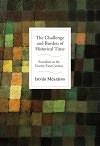
A breakthrough in the development of socialist thought, The Challenge and Burden of Historical Time is both a companion volume to Mészáros’s seminal Beyond Capital and a major theoretical contribution in its own right. Mészáros, one of the foremost Marxist thinkers of our age, focuses on the tyranny of capital’s time imperative and the necessity of a new socialist time accountancy, and provides a strong refutation of the popular view that there is no alternative to the current neoliberal order. | more…









